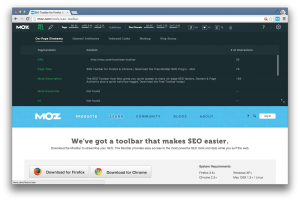
From before the dawn of the internet, email has been a central part of online communications. Its roots can be traced back to the 1960s and the oldest email standard still in popular use (POP3) originated in the late 80s.
Thanks to its ubiquity, email has been turned over to many uses, and suffered from severe abuses (spam being the clearest example of the latter). Some feel email has too much crafted onto it and it is commandeered into uses the service shouldn’t support. Technology leaders now view email as a problem to be solved and the latest person to try is Flickr co-founder Stewart Butterfield.
His latest venture, Slack, wants to bring all company conversations together, replacing email, instant messaging and other forms of communication, to give employees a single view of their working day. Making it easier to see the important items and keep everything organised.
Slack isn’t alone in tackling. Microsoft, Google, Huddle, Basecamp and others want to be the next default electronic communications platform for particular uses. Looking at these attempts to usurp email some common themes emerge.
Quicker communication
Email was once the fastest way of getting a message to someone. Getting a reply wasn’t necessarily as quick though. Instant messaging services, such as Microsoft Lync aim to speed up conversations, making organisations quicker to respond and increasing efficiency.
Sharing documents
Email attachments have been a key method of transferring business documents. As documents have grown in size, and greater emphasis placed on how company information can leak into the hands of competitors, cloud storage providers have set themselves as a safer, simpler alternative to the paperclip attachment on a message.
Message organisation
The folder metaphor of email is sometimes seen as being inefficient given the increase in message volume over time. What worked well for 20 messages doesn’t work for 2,000.
Out of date
What peaks a technology company’s interest is doing something new. There’s an in-built desire to seek out old ways of acting and replace them. Email being one of the oldest online technologies around makes it ripe for replacement with something designed for modern working.
Looking at the criticisms levied by those looking to claim email’s throne as the key business communications tool can lead businesses to ask do they need email at all? Atos Consulting, for example, have already made steps in eliminating email from workflows by banning internal messages.
Should other companies follow Atos’ lead and stop using electronic mail? Despite it’s perceived shortcomings there are many reasons to keep email at the centre of business communications.
Easy to use
The folder metaphor may be considered ‘old-hat’ but it’s a simple one for users to grasp. New employees, and those entering the workplace for the first time, have a shallower learning curve and are productive quicker than if learning a whole new communication system.
No vendor lock-in
Email’s longevity makes it a well understood technology, available from multiple suppliers and supported by many IT companies. The vender lock-in with replacement technologies is a real concern, with no easy way of moving information between services.
Mobile-ready
All mobile platforms put a great deal of resources into making sure their OS delivers a great email working experience. Whenever an employee obtains a new phone or tablet they can have email working in minutes, with no need to download additional apps or rely on a web interface.
Thinking time
It’s strange to think that a communications platform once considered the fastest way to communicate is now criticised for being slow. Instant messaging is great if instant replies are what are needed, but if an answer takes investigation or more thought, then email allows the recipient to give due consideration before replying.
Very long, did read
Pascal knew better than anyone the difficulties of writing short letters. It’s difficult to convey a message succinctly and, in business especially, some things need long, dedicated responses. Email remains the best way of conveying detailed information in a clear way. Telephone conversations may lead to key details being missed and instant messaging lacks longform capability.
Compact
Putting aside the image-based horrors email is sometimes subjected to (especially when sent from a marketing department), the size of most emails is measured in kilobytes. This may not seem important but when dealing with limited bandwidth or storage space, both very relevant for mobile platforms, the small size of most emails makes it an ideal way of communicating.
Identity
This may be the most important reason why email is not only relevant in business, but essential. Email addresses are part of people’s online identity. For individuals, email addresses are the only way of signing up for most online services, for companies a professional email address is the first step of proving your credentials to potential customers. How many business relationships start with an exchange of emails? How many of these would be lost by moving to a propriety platform?
Email isn’t ready for retirement yet and businesses tempted to try a shiny new communications platform need to pause first. Email is well understood, flexible and, vitally, available from multiple sources. Until a replacement technology can match all its uses, and is adopted widely by customers, companies should resist moving their email service into the Deleted Items folder.
Business Articles | Business 2 Community
(378)








